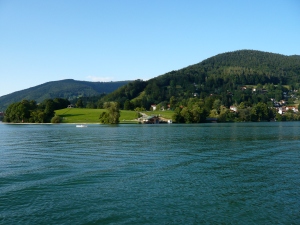“What is a three star experience like?”, some foodie and non-foodie friends use to ask me. What is the difference between a one, a two and a three star restaurant? In Michelin terms the answer is straightforward:
In essence the Michelin ratings pave the way of planning trips. Sitting in the very restaurant, however, is a different matter – how to really say a meal or dining experience would be worth three stars? First, let me stress this is a very personal matter – I am not a professional tester (good for me as I can choose rather freely what to eat) but I think I have eaten enough to be able to tell the differences… Second, I have personal likes and dislikes but in any review I try to point out where this might ve relevant. So, it shouldn’t affect the statement made and I prefer to give solid reasoning when praise or criticism is appropriate.
Personally, without going into much detail and without elaborating on a sophisticated 100/100 scale (which I do not use anyway) the overall satisfaction is a function of the product quality, cooking precision, composition of dishes (pairing of flavours, sensible use of textures, dimensioning), creativity (unique/novel pairing of flavours, new techniques, unique handwriting), menu composition, consistent quality, service, ambiance. What I ‘borrow’ is the grading system (very good – one star, excellent – two stars, outstanding/exceptional – three stars).
At a three star restaurant I just take product quality and cooking precision for granted – there is no excuse for faults here. If one just takes the best products available, cooks them impeccably and composes dishes in a stringent way, that can be very well three stars as numerous examples (like L’Ambrosie, Ducasse, Auberge de L’Ill or Thieltges here in Germany) show. Some might find this boring but it is just an immense pleasure to eat something which cannot be made better. Kind of risky because this approach dramatically fails if there are only minor deficiencies. Readers of my blog might have noticed that I prefer a cuisine that surprises my in a distinct way and shows some uniqueness, be it a unique style in pairing flavours (like Amador or Bau) or a unique approach to cooking (like Redzepi or Achatz).
Where was I? Why am I telling you this an intro to another visit of Christian Jürgens at the Überfahrt? Because, in Germany, the highest laurels seem to be in sight for him and Thomas Bühner. (Personally I would like to count in Michael Hoffmann of Margaux but he needs to get the second star first…) Maybe these thoughts can help in evaluating my recent experiences and make it transparent why I think there could be a promotion or not…
After my last visit at the Überfahrt about a year had passed – it was Jürgens’ first year at the Überfahrt and his early steps at his new domain were rather impressive. So, time for a short update – before the new guides come out…




